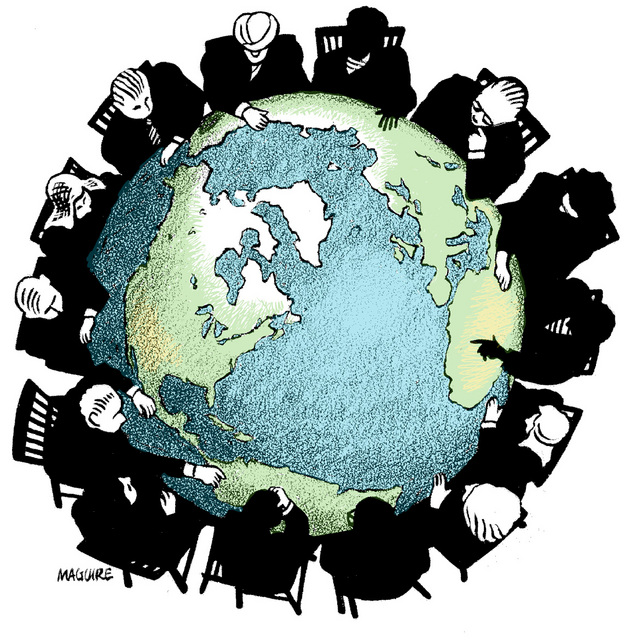How can we differentiate between state and nation? A nation is classified as a separate group of people that share the same culture, tradition and history. Unlike the state, a nation is not an actor of international law nor is it an actor of international politics. The 1993 Montevideo Convention in describing the legality of a state says “a person of international law should possess the following qualifications: a permanent population; a defined territory; government; and capacity to enter into relations with the other states.” This implies that in order for a nation to become a state, it must contain such specific organs to be considered in compliance to the international law. In addition, a state must also have sovereignty in which it is free to conduct its own system of governance and practice its own municipal laws that do not interfere with international law.
Estrada Doctrine
The recognition of a state, also known as the Estrada Doctrine, was first announced in the 1930s by Mexico’s Secretary of Foreign Affairs, Don Genaro Estrada. The policy of this doctrine was to address the concerns of intervention and self-determination. It speaks of the recognition of states rather than the governments within the states. Recognition is not only about applying the legal consequences to a factual situation because sometimes a state might refuse to follow such consequences domestically or internationally. For instance, the United States refused to recognize North Korea or the People’s Republic of China for many years because it did not want the legal effects of recognition to come into operation. This shows that the use of recognition can be highly political and that recognition is applied to demonstrate political approval and disapproval.
Recognition also stresses the unbinding practices of the states rather than the legitimacy of the state. The Estrada Doctrine acknowledges the full sovereignty of the state and eliminates the foreign interference in internal affairs of governments which are considered to be constantly unstable. It has also been argued that “the Estrada Doctrine properly assumes that diplomatic representatives should be considered as accredited to the state and not to the government”. When there is an occurrence of unwanted disturbance or disorder, a foreign state may be frequently called upon to decide whether it owes a duty of non-interference to the disordered state or of support to the threatened government. This task becomes less difficult when the extreme condition of the state is recognized and the foreign state becomes guided by the obligations of neutrality. The doctrine makes a clear distinction between the recognition of a new state and recognition of a new government. It highlights importance of recognition because when new states are being created and its old units are falling apart, new governments come into these new states and begin to create constitutions that may at times be accompanied by force.
[captionpix align=”right” theme=”elegant” width=”325″ imgsrc=”http://natoassociation.ca/wp-content/uploads/2013/11/kosovo.jpg” captiontext=””]
Kosovo case:
A rebellion or an aggression of administration can occur in an area of established territory that is controlled by the legitimacy of the government. Kosovo and Serbia is an example. In 1999, there was an international process on who should govern Kosovo. Since the violent collapse of Yugoslavia, the future of Kosovo’s territory remained an issue for the international community. In this case, the nation of Kosovo, being a territorial link to the governing state of Serbia, demanded to be internationally recognized as a state and independent from Serbia. However, the issue was that many states refused to recognize it as an independent state. Serbia claimed that Kosovo is already a part of an internationally recognized state and therefore does not constitute for self-determination under international law and hence does not have the right to secession. On February 17th of 2008, the Assembly of Kosovo issued its Declaration of Independence, in which it declared that the Republic of Kosovo was an ‘independent and sovereign State.’
Once recognition occurs, the new state of affairs is considered opposable to the recognizing state. So, recognition constitutes the participation in the international legal process and at the same time in the context of bilateral relations. There is a formal theoretical maintenance that it is only through recognition that a state comes into being under international law, but now there is an approach that maintains that once the factual criteria of status of the state have been successfully reached, a new state exists as an international person. When an entity seeks to become a state, in hopes of being accepted by the international community as being entitled to exercise the right of self-determination, it has to demonstrate that it has not internally offended any principle requirements. The criteria for determining the existence of state hood in which other states then recognizes is provided by international law.




